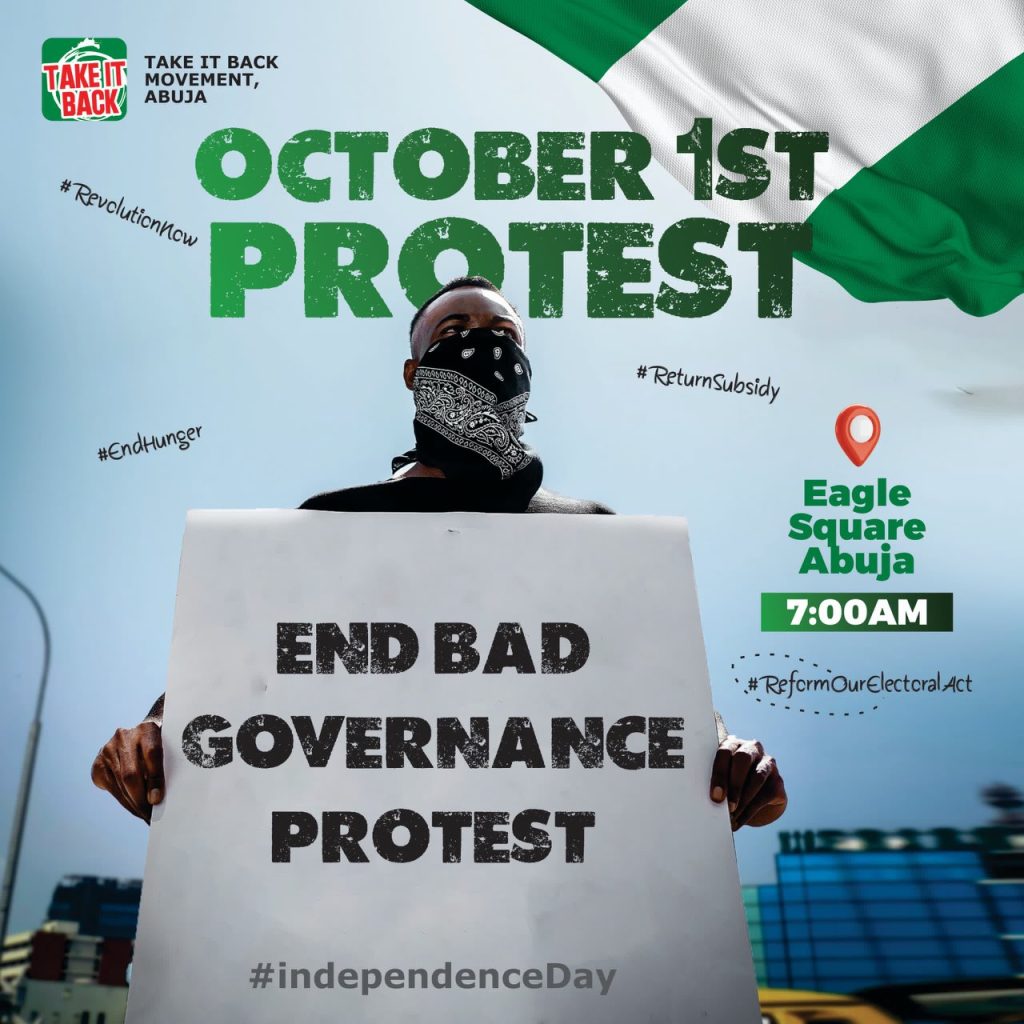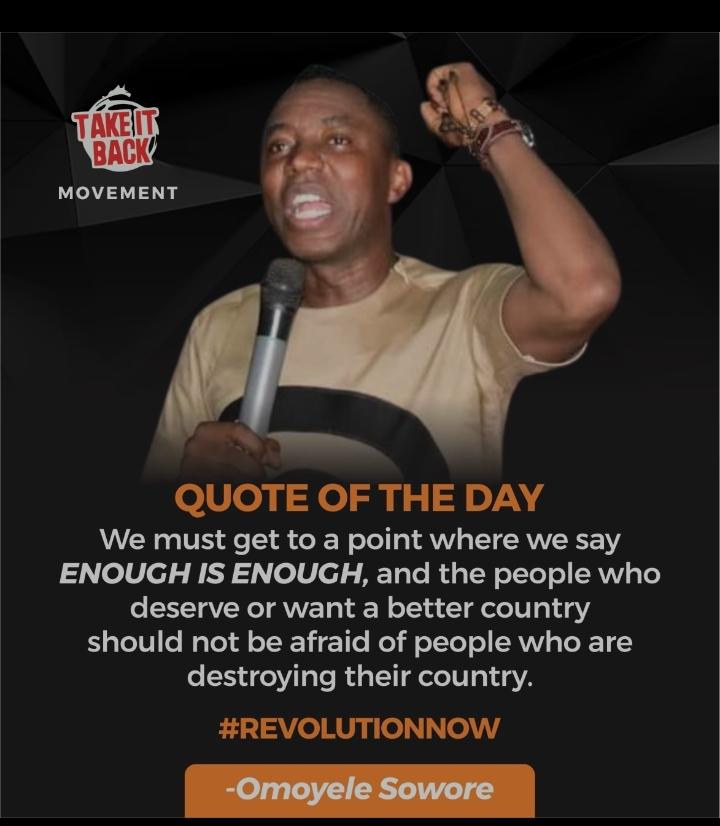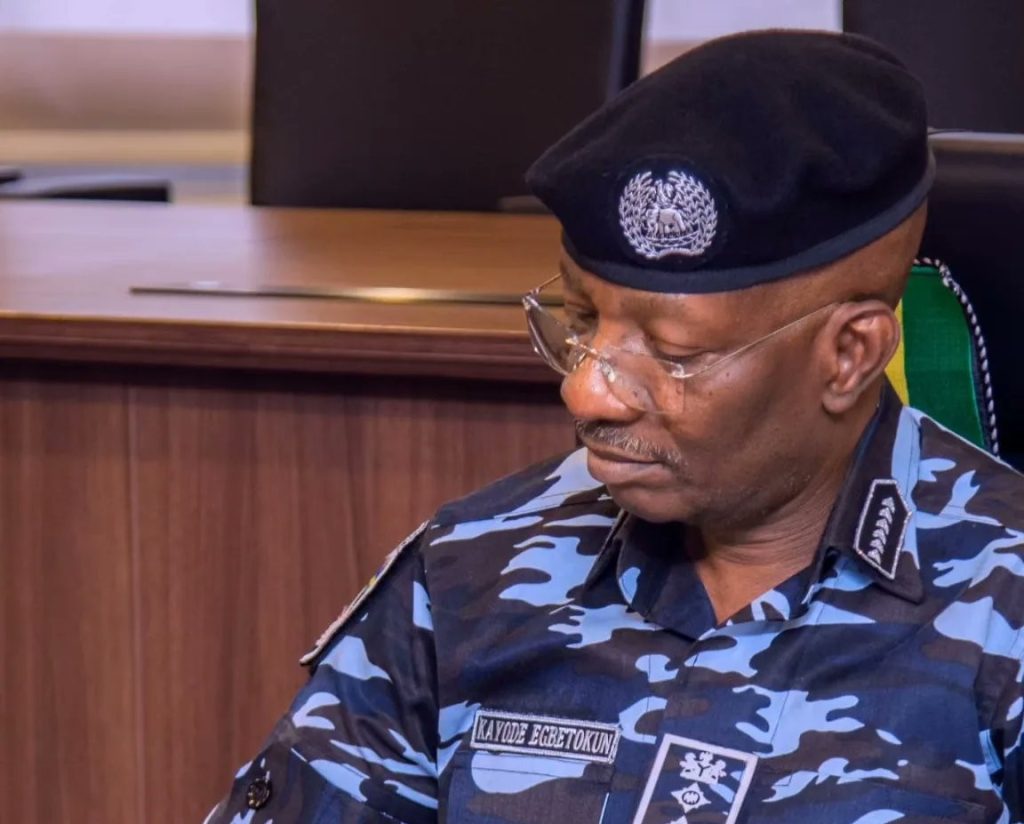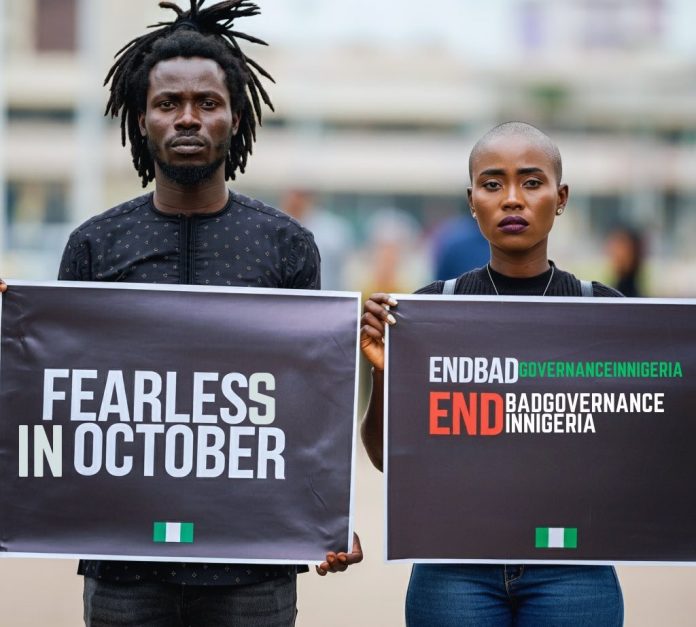Nigeria will mark its 64th Independence Day on October 1, 2024. The Nigerian government is preparing for a “low-key celebration” and at the same time bracing for a potential second wave of #EndBadGovernance protests.
The October protest, tagged #FearlessInOctober, follows a similar one in August, which saw thousands take to the streets in various parts of the country demanding policy reversals, including the reinstatement of petrol subsidies and to reverse the floating of the currency – the Naira, which has declined by 200% in value.

The August protests turned violent in some areas, with attacks on both public infrastructure and private property. Some protesters even openly demanded a regime change.
President Bola Tinubu acknowledged the citizens’ pain but defended the government’s measures as necessary for the long-term restructuring of the economy to a sound footing.
Biting Inflation Fueling Protests
However, organizers accuse the government of profligacy and waste and are convinced that the pains of the economic reforms are disproportionately borne by the already impoverished masses.
The economic situation has worsened since the August protests, with petrol prices soaring from ₦750, which fueled the protest, to well over ₦1,000 per liter in many parts of the country. The currency exchange rate of the Naira has also further plummeted, closing the week at ₦1,667 to the United States dollar.

Political activist, Omoyele Sowore, who only last week returned to Nigeria from the United States, confirmed he will be participating in the #FearlessInOctober protests. “I will be out there on the protest lines, joining my voice to that of other Nigerian patriots,” he said.
Sowore says the deteriorating conditions, rising inflation, and persistent insecurity make the protest even more compelling. “Inflation has gone up. Insecurity has increased. Our people are drowning in floods because the government failed to secure the dams. Bandits wiped out an entire village just a few weeks ago. Things have gotten worse for the Nigerian people,” he lamented.
“Trying to silence dissenting voices doesn’t augur well and it won’t do the country any good.”
Deji Adeyanju, another protest leader, emphasized the need for authentic, grassroots-driven protests.
The protest organizers also demand the release of detained protesters held since August, a “living wage“, and decisive action against insecurity.
But not everyone is convinced. Professor Kamilu Sani Fagge of Bayero University Kano believes the protest is unnecessary, arguing that in democratic settings, people freely choose their governments and should accept the policies they enact.
The Nigeria Labour Congress (NLC) – the umbrella body of the workers’ unions – said it has not been notified of any protests, but advised the government that “Trying to silence dissenting voices doesn’t augur well and it won’t do the country any good.” The unions absolved themselves from any part in the protests. “We’re not part of anything for now,” a union leader said.
Government Seeks Engagement
However, Special Adviser to the President on Information and Strategy, Bayo Onanuga, reported that the government is reaching out to the protest organizers to avert chaos. “The government is not against any peaceful protest by Nigerians. After all, it is their fundamental right,” he said.
He expressed concerns about protests turning violent, as seen in August and during the 2020 #EndSARS protests.

The police chief, Inspector-General Kayode Egbetokun, warns his men are on high alert to deal with those who may wish to breach the peace. He said officers have been instructed to prevent any breakdown of law and order.
As the nation prepares for Independence Day, the effectiveness of government engagement with protest organizers will be crucial in determining the day’s outcome. Citizens will be looking to hear a comforting and hopeful message from President Bola Tinubu, who is rumored to be mulling a shakeup of his cabinet.
Comment, Like 👍, share this article, and Follow us on our social media handles.







